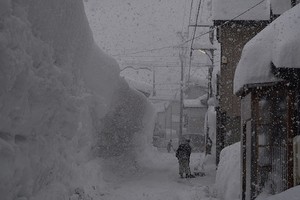By TOMOHIRO HAMADA/ Staff Writer
May 1, 2021 at 16:41 JST
A childhood spent in foster care leaves many youngsters totally unprepared for the realities of fending for themselves when the time comes to strike out on their own to look for work and take on the responsibilities of adulthood.
For some with nothing in the way of decent savings, their daily situation can be so precarious that early death is a constant fear.
This disturbing picture emerged in the first national survey on youngsters released from foster care or households led by foster parents, which in principle happens when they turn 18.
With no biological family ties or relatives to turn to, many face difficulties remaining in school or finding jobs that will allow them to rent a place to live.
But the actual picture may be far grimmer than the study suggests.
It was designed to cover all 20,690 individuals who had at least a junior high school education and left foster homes or foster parent households between April 2015 and March 2020 to determine what they needed in terms of further government support.
Questionnaires were addressed to each individual, but only 35.7 percent of the intended recipients received them.
The whereabouts of the remaining two-thirds or so were unknown, mainly because no forwarding address or contact number was left with the foster home or foster parent household, indicating those individuals went out into society with no obvious ties to any adult.
The welfare ministry released the results of the study on April 30 based on responses from 2,980 individuals.
One-third of the respondents said they did not have adequate funds for daily life or to go to school. Only 26.8 percent said their monthly earnings were sufficient to get them through, while 22.9 percent said they ran out of money each month.
About 20 percent of respondents said they had not seen a doctor or dentist over the past year. Of those, 66.7 percent said the primary reason was a lack of funds.
The study also found that many were far less likely to graduate from university than other Japanese in the same age group living in a more secure environment.
A 2017 study of the job situation for young Japanese aged between 20 and 24 found that 29.6 percent had graduated from university or had a graduate school degree. In contrast, the latest survey found only 2 percent of respondents had managed to graduate from university.
“Because those 18 and older are not covered for support by the Child Welfare Law, nothing was done for them until now,” said Ichiro Matsumoto, a professor of education and welfare policy at Hokkaido University who headed the committee that compiled the results of the study. “Those (who leave foster homes) have fragile family bases that would normally serve as the forum for representing their interests, so their concerns are not being reflected back to society.”
The welfare ministry concluded from the study that continued support was needed for those who leave foster homes rather than simply cut off such services at a certain age.
Saki Nagano, a lecturer of social welfare studies at Musashino University, was also involved in the study. She noted that those who did not even receive the questionnaire were likely in an even more pressing situation.
Nagano was involved in another study in 2014 that found those who left foster homes were much more likely to seek public welfare assistance. The study estimated that such individuals were 18 times more likely than the average Japanese in their 20s to seek such assistance.




















A peek through the music industry’s curtain at the producers who harnessed social media to help their idols go global.
A series based on diplomatic documents declassified by Japan’s Foreign Ministry
Here is a collection of first-hand accounts by “hibakusha” atomic bomb survivors.
Cooking experts, chefs and others involved in the field of food introduce their special recipes intertwined with their paths in life.
A series about Japanese-Americans and their memories of World War II